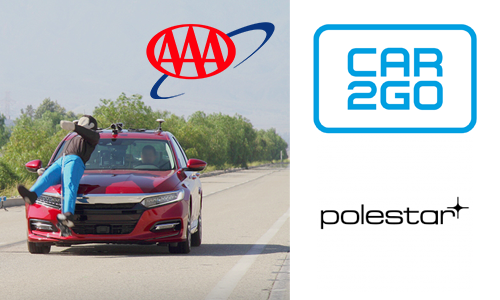Pedestrian Problems
New technology specifically designed for avoiding pedestrian collisions often proves ineffective in real-world conditions, according to a recent study conducted by the American Automobile Association (AAA).
In closed-street tests conducted by AAA, cars that came equipped with automated emergency braking systems struck adult dummy pedestrian targets crossing the road 60 percent of the time.
The vehicles were travelling around 32km/h when tested with the adult dummies. Researchers made the tests more challenging by swapping full-sized dummies for child ones, as well as testing at night or driving at higher speeds. In the second round of tests, the braking system’s performance deteriorated.
The tests involved real-world situations, like a vehicle turning right into the path of a crossing pedestrian. In this scenario, AAA’s testing found that the emergency braking systems failed to react at all.
On average, nearly 6,000 pedestrians lose their lives each year, accounting for 16% of all traffic deaths, a percentage that has steadily grown since 2010.
AAA recommends drivers always be alert of their immediate surroundings and do not rely on pedestrian detection to avoid a crash.
Volvo Shoots for the (Pole)stars
Polestar, Volvo’s electric vehicle start-up brand, chose Toronto, Ontario to debut its newest vehicle, the Polestar 2.
Now on display at Union Station in Toronto, as well as at the city’s Billy Bishop airport, the Polestar 2 is an all-electric five-door liftback. The displays were followed by an invitation-only networking event with interested customers on Sept. 27.
The Polestar 2 is a mainstream model that mimics the much more exotic characteristics of its predecessor, the Polestar 1 PHEV. The company is currently building–and has already pre-sold–500 units for the 2020 model year.
Polestar plans to have three Canadian outlets in place by the time the cars go on sale in June 2020: one in Toronto, Montreal and Vancouver.
Each Polestar store will be owned and operated by an existing Volvo retailer but will have its own separate location and a very different operating method.
Both Polestar and Volvo are owned by Chinese automaker Geely. Geely purchased Volvo for US$1.8 billion in 2010.
Car2Gone
After launching into a rebranding effort, Car2Go, a short-term rental service catering to several cities in the U.S. and Canada is pulling out of Calgary, Alberta.
On Sept. 27, Car2Go–now known as Share Now–announced it will no longer have a presence in Austin, Texas; Portland, Oregon; and Calgary, Alberta as of October 31, 2019. Denver, Colorado’s Car2Go service will also end two months later, on December 31, 2019.
The company launched in 2009 as a short-term vehicle rental alternative to private car ownership. It provides customers with hourly rentals via and app.
In February, Mercedes-Benz and BMW formed a joint venture with Car2Go with US$1.1 billion in investments.
Car2Go’s announcement comes shortly after the company experienced an apparent heist of at least 100 Mercedes-Benz vehicles that were part of its Chicago fleet. Chicago police said that, although the majority of the company’s vehicles have been accounted for, some may have been rented by “fraudulent means.”
Although the company’s fleet will no longer be seen in Calgary, the brand is focusing on efforts in “cities that present the clearest path to free-floating carshare access.” Among those cities is Montreal, Quebec, as well as New York, Washington, and Seattle–all in the United States.
You can find the company’s 600-strong Calgary fleet at upcoming private broker auctions in the city and surrounding area. The vehicles will be sold individually, but no other details have been finalized.





































